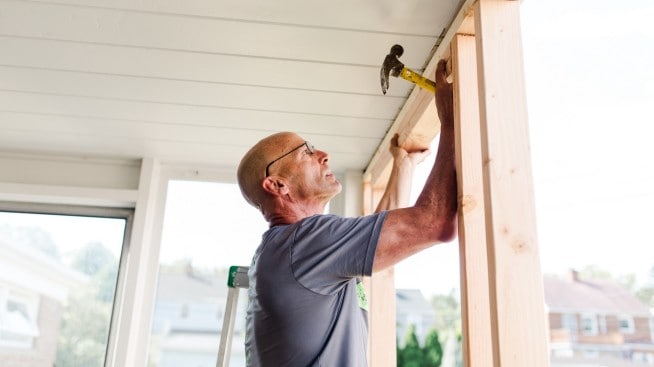Types of homeowners insurance you may not know about

Insurance may help protect your home and your belongings, and could assist with damages in the event of an emergency. It may also protect the lender should you fall behind on your mortgage payments. Depending on the insurance type, it will protect the lender, the buyer or both parties.
First, we’ll go over the different mortgage insurance types that help protect the lender, then we’ll explore options that can help a homeowner protect their new asset.
Insurance that protects the lender
To minimize risk for the lender in the event of late payments or defaulted loans, they usually require that the loan has mortgage insurance.
What is mortgage insurance?
Mortgage insurance is often required by the lender in the event your down payment on a conventional mortgage is less than 20 percent. It serves to protect the lender from late payments. There are two main types of mortgage insurance:
- Mortgage insurance premium (MIP)
- Private mortgage insurance (PMI)
We’ll be exploring the differences below.
Mortgage Insurance Premium (MIP)
A Mortgage Insurance Premium (MIP) is typically required with loans that come with smaller down payments, like FHA loans, although you’ll pay MIP regardless of your downpayment and loan-to-value (LTV) with an FHA loan. Your LTV ratio is a figure lenders use to determine risk. The loan amount is compared to the market value of your home. You pay MIP, but it protects the lender. The Upfront Mortgage Insurance Premium (UFMIP) needs to be paid at the time of closing as well. This is normally around 1.75 percent of the loan amount and may be paid in cash or financed in your loan amount. The UFMIP is a one-time payment, while the MIP is tacked on to your monthly loan payments.
Private Mortgage Insurance
What is private mortgage insurance? Private Mortgage Insurance (PMI) is associated with conventional mortgages that have a down payment below 20 percent. There can be exceptions or ways to avoid PMI, but it is typically required. If you’re refinancing to a conventional loan, PMI may be required as well. PMI usually entails monthly payments, but the entire cost can be paid upfront, depending on your lender and the insurance company.
Insurance that protects the buyer
Various types of homeowners insurance serve to protect the buyer and are often required by the lender before approving you for a mortgage. Note some may be elective depending on personal circumstances. Here are three you should know about:
- Homeowners insurance
- Title insurance
- Hazard insurance
Homeowners insurance
Most mortgage lenders will require some form of homeowners insurance. Homeowners insurance is the general term for an insurance premium you pay for the financial protection of your home. There are various types and tiers of homeowners insurance, some providing more coverage than others. Speak with your insurance provider to determine the exact coverage you are obtaining.
What does homeowners insurance cover?
Depending on your policy, homeowners insurance can cover anything from stolen items to damaged property and natural disasters. This is not to be confused with hazard insurance, which we’ll go over below. Some policies cover things based on actual cash value, meaning the price an item was purchased at the time. Others cover replacement value, meaning it covers the amount it would cost to replace the item today. Policies with replacement value usually carry higher premiums than policies that cover actual cash value.
Popular homeowners insurance policies cover things like:
- Additional living expenses
- Personal liability
- Medical payment coverage
- Property damage
Additional living expenses
Additional living expenses are bills incurred if you must vacate your home, like relocation and hotel expenses. Note that voluntary renovations don’t count under this coverage — It’s only applicable if you must leave due to a government mandate or a cause out of your control that makes your home inhabitable.
Personal liability
Personal liability can cover you against lawsuits that come out of personal property damages or injuries. An event like this could be utilized for your property or it may also cover you if something happens on someone else's property. For example, if someone hurts themselves on your property, depending on your policy, you might be protected in the event they sue.
Medical payment coverage
Medical payment coverage is another option that can help in the event someone hurts themselves on your property. If someone gets injured on your property but doesn’t sue, medical payment coverage might help pay for their medical bills. There is usually a cap to how much insurance companies will cover.
Property damage
Property damage may include damages from inclement weather or natural causes. Depending on your policy, it may cover some damages but not provide full coverage. If you live in an area prone to floods or earthquakes, for example, you may want to invest in hazard insurance.
Title insurance
Title insurance is another type of insurance often required by lenders, purchased before closing on a house. This type of insurance protects the buyer and lender. Title insurance is a preventative measure taken regarding the ownership of your home. Title insurance is different than homeowners insurance. Homeowners insurance protects against future damages to your property and assumes the risk — Title insurance is more of a preventative measure.
When you buy title insurance, title examiners inspect the history of your home and clear up any ownership issues that could come up in the future. This protects you from covered legal costs or proceedings that may occur if a claim is made.
Hazard insurance
So, what is hazard insurance, and what does it do? Hazard insurance is coverage that protects against damage from natural events. It is usually an extension of your overall homeowners insurance. Hazard insurance can be important if you live in an area with a high probability of natural disasters that wouldn’t otherwise be covered in your overall homeowners insurance policy.
Although some natural events are covered under a standard homeowners insurance policy, taking out extra hazard insurance could be beneficial depending on your home’s location. If your property is located in a Special Flood Hazard Area (SFHA), your lender will require you to purchase flood insurance.
Finding the right coverage for your home
There are many different forms of insurance coverage when it comes to homeownership. Knowing and understanding the different types of insurance like title insurance, hazard insurance and more can help you understand the bigger picture of what you’ll be able to afford on the journey to homeownership.



